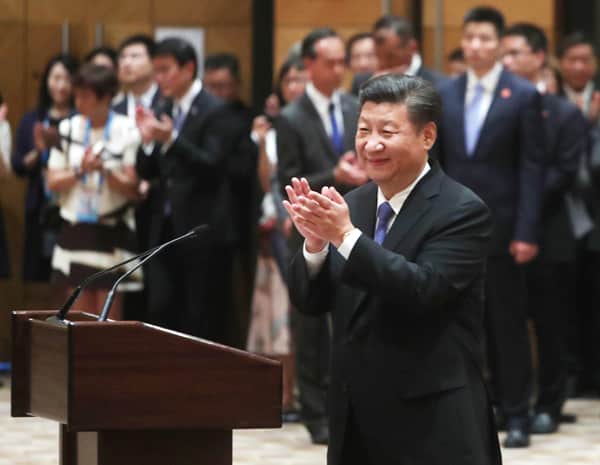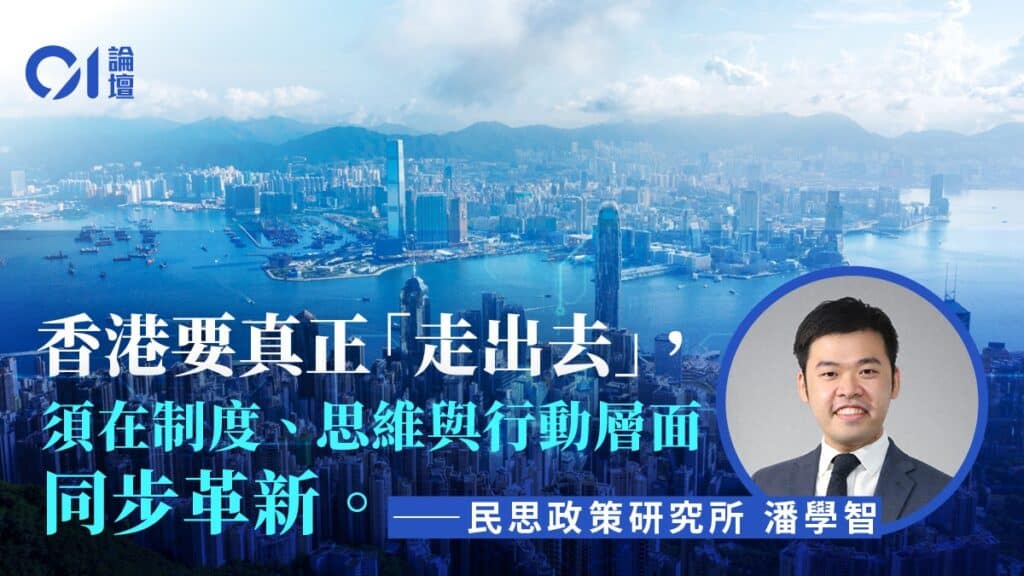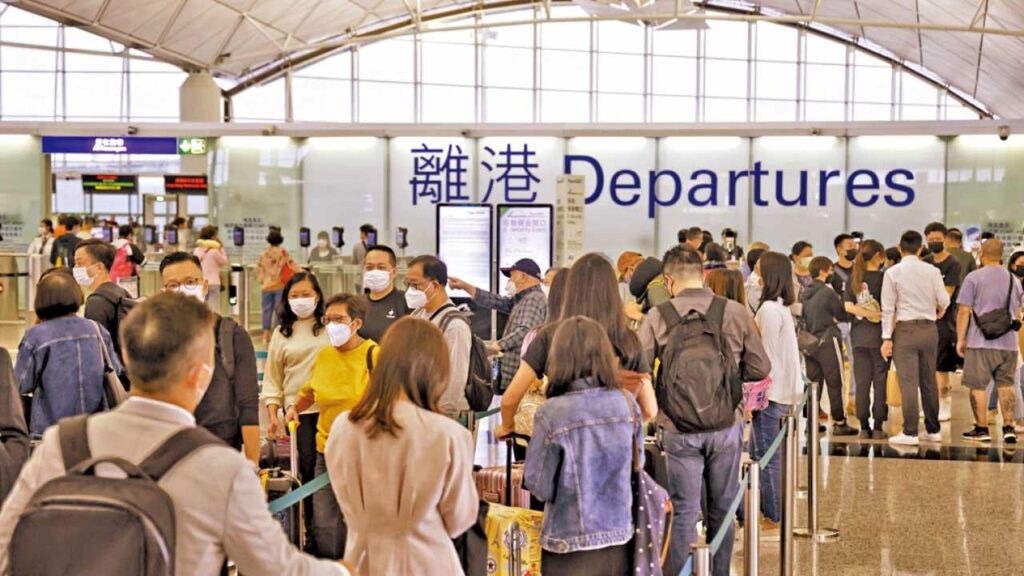On the occasion of the 20th anniversary of China's return to the motherland, President Xi Jinping said that "there will be no boat rides after Suzhou" in Hong Kong. Seizing opportunities and seeking development is the golden key to solving Hong Kong's problems. In 2017, Hong Kong gradually reorganized its political and economic order. Many social conflict cases were brought to court, and the protesters paid the price for all the troubles. As the saying goes, Hong Kong cannot withstand internal strife. Fortunately, the economy has performed well in recent years. In 2017, it recorded a growth of 3.8%, a six-year high, laying the foundation for a harmonious and stable social environment.
The world economic landscape is changing rapidly and international competition is becoming increasingly fierce. Xi Jinping put forward four points, one of which is to "focus on development" to maintain Hong Kong's status as an international financial, shipping, and trade center. The Hong Kong stock market experienced a "big era" last year, with the Hang Seng Index exceeding 30,000 points for the first time in ten years. The trading volume of Shanghai-Hong Kong Stock Connect and Shenzhen-Hong Kong Stock Connect increased significantly. Southbound funds accounted for 4.5% of local stock market trading volume in 2016 to 7.5% in 2017. Northbound funds accounted for 7.5% of daily trading volume in Shanghai and Shenzhen. 1%. The "Northbound Connect" under Bond Connect was launched in July 2017, allowing foreign investors to invest in the mainland's interbank bond market, helping to consolidate Hong Kong's leading position in offshore RMB business.
In order to promote financial technology and innovation in Hong Kong, the Hong Kong Stock Exchange proposed to allow three types of new economic enterprises to be listed on the main board in the form of different voting rights for the same shares. It described this as the biggest change in Hong Kong's listing system since the introduction of H shares in 1993. The Hong Kong Monetary Authority, the Securities and Futures Commission and the Insurance Regulatory Authority have respectively established the "Fintech Regulatory Sandbox", "Regulatory Sandbox" and "Insurtech Sandbox" to allow securities firms, banks, the insurance industry, the technology industry and start-ups to trial financial technology. The Hong Kong Monetary Authority has also launched a fast payment system and a virtual banking license, while the Insurance Regulatory Authority has also implemented a fast-track pilot scheme to drive innovation in financial services.
The Hong Kong-Zhuhai-Macao Bridge project is generally completed, bringing a new look to Hong Kong's shipping industry. The driving time between Hong Kong and the western Pearl River Delta will be significantly shortened. Cargo from western Guangxi and Guangxi can be connected to the Hong Kong Airport and container terminals, enhancing Hong Kong's status as a shipping hub. In order to cope with the development of cross-border infrastructure, Kwai Chung has also joined the ranks of automated terminals. One of the terminals has fully implemented Hong Kong's first automatic container stacking system, using advanced technology to reform traditional industries. Faced with the strong demand for talents in the aviation industry, the Hong Kong International Aviation Academy established by the Airport Authority has launched its first batch of courses, ranging from summer courses and internship programs for young people to professional courses jointly organized with tertiary institutions. The Hong Kong International Aviation Academy has also jointly launched a master's degree program in air traffic management with the French National Institute of Civil Aviation to support the long-term development of Hong Kong's aviation industry.
Hong Kong is an important link in the trade links of the “One Belt, One Road” initiative, and the Guangdong-Hong Kong-Macao Greater Bay Area is Hong Kong’s development hinterland. The National Development and Reform Commission signed an agreement with Hong Kong to support participation in the "Belt and Road" construction, and also signed a "Framework Agreement on Deepening Cooperation between Guangdong, Hong Kong and Macao to Promote the Construction of the Greater Bay Area" with the governments of Guangdong, Hong Kong and Macao, leveraging Hong Kong's advantages in finance, infrastructure, economy and trade, and professional services. This aims to promote international trade, opening up and partnerships between mainland and Hong Kong enterprises. The signing of the Free Trade Agreement and related Investment Agreements between Hong Kong and ASEAN has further enhanced the close cooperation between Hong Kong and countries along the Belt and Road Initiative. ASEAN is Hong Kong's second largest goods trading partner. The agreement not only reduces tariffs on goods originating in Hong Kong, but also opens up a broader market space for Hong Kong's service industry, taking an important step towards establishing an important global trade center.
In addition to the three traditional advantageous industries of finance, shipping and trade, the development of innovative technology has become the social consensus for Hong Kong to find new growth poles. The policy address also touches on this. On the one hand, a high-level cross-departmental innovation and technology steering committee will be established under the chairmanship of the Chief Executive Council. On the other hand, research and development activities will be encouraged and tax incentives will be provided for corporate expenditures. The "Hong Kong-Shenzhen Innovation and Technology Park" located in the Lok Ma Chau Loop is under construction. It will be the largest innovation and technology park in Hong Kong's history. It will make up for the urgently needed land space for innovation and technology development and cooperate with the promotion of Hong Kong, which has five of the world's top 100 universities. "Government, Industry, University and Research". The Electrical and Mechanical Services Department has also developed a test platform to support start-up scientific research projects such as driving devices and energy conservation, and encourages the industry to continue to promote the application of innovative technologies.
Hong Kong does not rest on its laurels. While striving to improve its inherent advantages, it is also eager to catch up and open up new areas. Zhang Junsheng, the former deputy director of Xinhua News Agency's Hong Kong branch, passed away in recent months. As he witnessed the return process, he was interviewed earlier and reminded Hong Kong people to "neither be arrogant nor belittle oneself." Hong Kong has refocused on the innovative economy. Although it has advantages, it still needs to invest in the future and open the door to long-term development by building consensus to guide the way.
Du Julan Co-Director of Shanghai-Hong Kong Development Joint Research Institute
Pan Xuezhi Research Assistant, Shanghai-Hong Kong Development Joint Research Institute



